GENERAL
1. Right of Recovery
If the Member shall, in respect of risks set out in Rule 4, incur any liability, loss or expense in respect of the entered ship arising from a casualty or event occurring during the policy period, the Member shall be entitled to recover out of the funds of the Association the amount of such liability, loss or expense in accordance with the Rules and Certificate of Entry in respect of such entered ship;
PROVIDED ALWAYS THAT:
- unless the Directors in their discretion otherwise determine, it shall be a condition precedent of a Member’s right to recover from the funds of the Association in respect of any such damages, liability, loss or expense that he shall first have unconditionally discharged the same in full by payment out of monies belonging to him absolutely and not by way of loan or otherwise; and
- the liability of the Association shall be subject to the Certificate of Entry and subject to the Rules;
- the limit of liability specified in the Certificate of Entry shall be inclusive of legal costs and expenses and, not-withstanding s.78(1) of the New Zealand Marine Insurance Act, 1908, inclusive of costs and expenses of suing and labouring;
- no legal costs or expenses or costs or expenses of suing and labouring shall be recoverable unless either they have been incurred with prior consent in writing of the Managers or the Managers have determined in their discretion that such costs and expenses were reasonably incurred.
- in any case the liability of the Association for any and all liabilities, losses, costs and expenses incurred by all Members, Co-assureds and Affiliates under any one entry and which arise out of any one event or series of events shall be limited to the sum insured in the terms of entry, provided always that to the extent the Association has reinsured any risk insured, the Association shall only be obliged to pay any amount in excess of USD 250,000 per event or series of events as and when such funds are received by the Association from its reinsurer(s) and the Association shall in no circumstances be liable to pay any amount(s) which cannot be recovered from reinsurer(s) regardless of the reason for such non recovery.
2. Limitation of Liability
- Subject to the Rules and to any special terms and conditions upon which and limits and deductibles subject to which a ship may entered, the liability of the Association shall in no circumstance exceed the liability of the Member ( less any applicable deductible) in respect of any entered ship as this liability may or would ultimately be determined and fixed by law, including any laws pertaining to limitation of shipowner’s liability. The Association shall in no circumstance be liable for any sum in excess thereof,
- If a Member for whose account a ship is entered is not the registered owner, demise charterer, manager or operator of the ship, such Member shall be deemed to be entitled to all the limitations of liability which would apply if he were the registered owner of the ship and were entitled to limit liability. Any amount recoverable from the Association shall be limited accordingly unless the Association shall before entry have agreed to an increase in the Association’s liability and such agreement is recorded in the Certificate of Entry.
3. Oil Pollution Limitation
- Subject to (b) and (c) below, the Association’s liability for any and all claims in respect of damage directly or indirectly caused or threatened by oil pollution shall be limited in the aggregate to such amount as may be stated on the Certificate of Entry. The Directors may, in their discretion, impose special terms and conditions on the insurance of damage caused or threatened by oil pollution,
- Unless the Directors shall in their discretion otherwise decide, the limit of the Association’s liability shall apply irrespective of whether the accident or occurrence involves the actual or threatened escape of oil from one or more ships and to all claims brought by the Member or joint Members in respect of the entered ship in respect of such accident occurrence. If the aggregate of such claims exceeds that limit, the liability of the Association for each claim shall be such proportion of the oil pollution limit as each such claim bears to the aggregate of all such claims.
- Unless the Directors shall in their discretion otherwise decide, if the entered ship provides salvage or other assistance to another ship following a casualty, a claim by the Member who entered the entered ship in respect of oil pollution arising out of the salvage and/or, assistance rendered to the casualty shall be aggregated with any liability or cost incurred in respect of oil pollution by any other entered ships similarly engaged in connection with the same casualty when such other ships are insured by the Association in respect of oil pollution. In this circumstance the limit of the liability of the Association to the Member who entered the entered ship shall be such proportion of the greater oil pollution limit as the claim of that Member bears to the aggregate of all such claims insured by the Association which arise directly or indirectly out of the casualty.
4. Want of Due Diligence
- If liabilities, losses or expenses are incurred as a result of want of due diligence by the Member, his managers, superintendents or onshore management, then the Directors may, in their discretion, reject or reduce the liability of the Association to the Member to the extent that such want of due diligence has, in their opinion, caused the liabilities, losses or expenses concerned.
- In exercising their discretion under paragraph 4(1) of this Rule the Directors may take into account any failure by the Member, his managers, superintendents or onshore management to comply with recommendations in connection with the operation of the entered ship which may have been made in any Circular or Risk Bulletin issued by the Association and published on its website the burden being upon the Member to show that the liability, loss or expense could not have been avoided by compliance with such recommendations.

